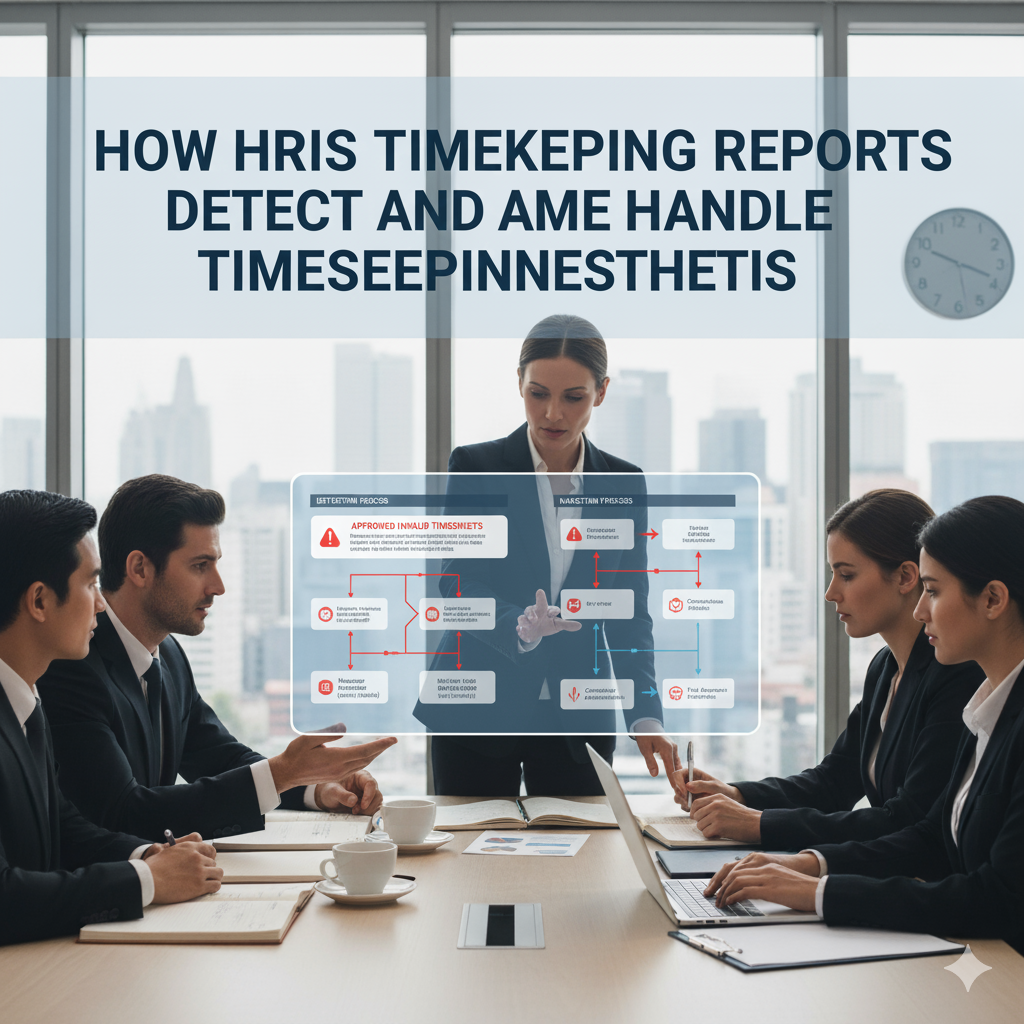Address
Kaypian, San Jose Del Monte City, Bulacan Philippines
Work Hours
Monday to Friday: 8AM - 6PM
Weekend: 10AM - 5PM
Address
Kaypian, San Jose Del Monte City, Bulacan Philippines
Work Hours
Monday to Friday: 8AM - 6PM
Weekend: 10AM - 5PM


Integrated HR. Accurate Payroll.


Integrated HR. Accurate Payroll.

In any organization, the accuracy of timesheets is essential for fair payroll processing and compliance. Yet, one common issue that HR teams face is the occurrence of approved but invalid timesheets — entries that have been mistakenly approved even though they contain errors, inconsistencies, or missing data.
These errors can lead to payroll discrepancies, compliance risks, and employee dissatisfaction.
Thankfully, modern Human Resource Information Systems (HRIS) provide robust tools to automatically detect and manage invalid timesheets, even those that have already been approved. Through Timekeeping Reports, HRIS platforms ensure that all attendance data is validated before payroll processing begins.
In this article, we’ll explore how HRIS Timekeeping Reports identify, flag, and handle approved invalid timesheets, helping HR departments maintain payroll integrity and operational efficiency.
An approved invalid timesheet occurs when a supervisor or timekeeper unintentionally approves a timesheet containing errors such as:
Even with an approval stamp, these timesheets can cause serious payroll issues if not corrected before processing.
HRIS systems are designed to automatically detect such discrepancies using validation rules and reporting mechanisms built into their timekeeping modules.
Modern HRIS platforms use data validation algorithms and cross-checking mechanisms to identify errors in approved timesheets. Here’s how they work:
Even with digital systems, human error can still occur. Here are common reasons for invalid but approved timesheets:
| Cause | Description |
| Manual Data Entry Errors | Incorrect entry of hours, dates, or employee details. |
| Missed Attendance Logs | Missing biometric or system time-in/out records. |
| Incorrect Shift Assignments | Approval of hours not aligned with scheduled shifts. |
| Unverified Overtime | Overtime hours logged without authorization. |
| System Sync Delays | Delays in syncing between attendance devices and HRIS. |
Recognizing these causes helps HR teams address issues proactively through automation and policy enforcement.
Once an invalid timesheet is detected, the HRIS system triggers corrective workflows to ensure accuracy before payroll processing.
Here’s how HRIS handles the process:
✅ 1. Flagging for Review
The system automatically flags invalid records in the Timekeeping Report, marking them as “Approved with Issues.”
✅ 2. Notification Alerts
Supervisors and HR officers receive notifications about the detected discrepancies, prompting them to review and correct entries.
✅ 3. Verification & Re-Approval
Once corrections are made (e.g., missing punches filled, hours adjusted), the timesheet must be re-approved by authorized personnel.
✅ 4. Integration with Payroll
Only revalidated and reapproved timesheets are passed on to the payroll module.
Invalid entries remain excluded until corrections are verified.
✅ 5. Audit Logging
All edits, re-approvals, and notes are logged in the system — creating a full audit trail for compliance and accountability.
Having an automated system that identifies and manages approved invalid timesheets brings several advantages:
| Benefit | Description |
| Payroll Accuracy | Ensures only valid and verified hours are processed for salary computation. |
| Data Integrity | Reduces risk of fraudulent or erroneous timesheet approvals. |
| Compliance Assurance | Maintains compliance with labor laws and internal policies. |
| Operational Efficiency | Saves time spent manually checking attendance data. |
| Transparency & Accountability | Provides traceable records for every approval and correction. |
A typical Timekeeping Report workflow for handling invalid timesheets may look like this:
This automation ensures no invalid entry passes unnoticed into payroll.
To ensure your HRIS maintains accurate and compliant timesheet data, HR teams should follow these best practices:
Invalid timesheets can cause major payroll discrepancies, even when they’ve already been approved. With an advanced HRIS Timekeeping Report, organizations can automatically detect, flag, and correct these entries — ensuring accurate payroll, strong compliance, and complete transparency.
By leveraging HRIS automation and real-time data validation, HR teams can confidently process payroll knowing every timesheet has been verified and approved correctly.